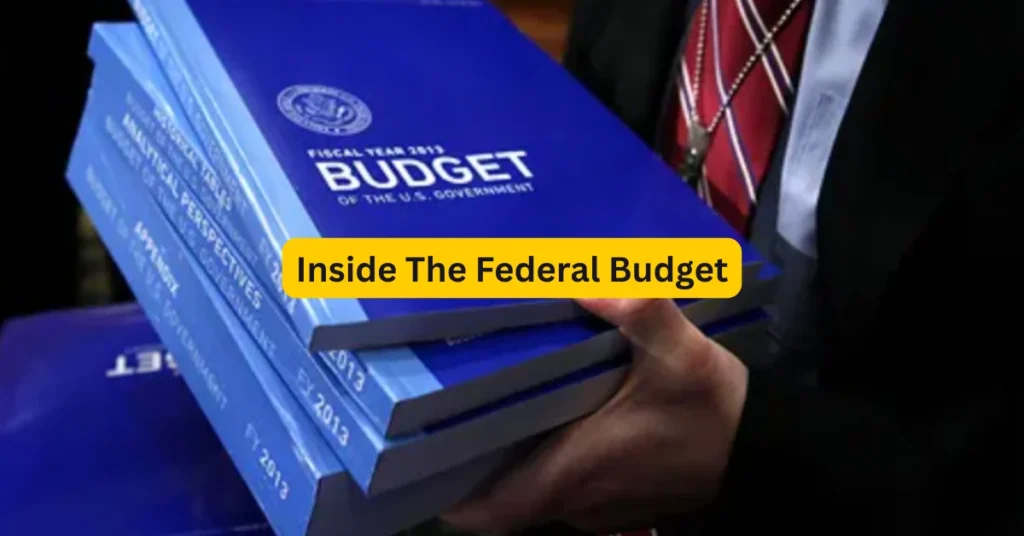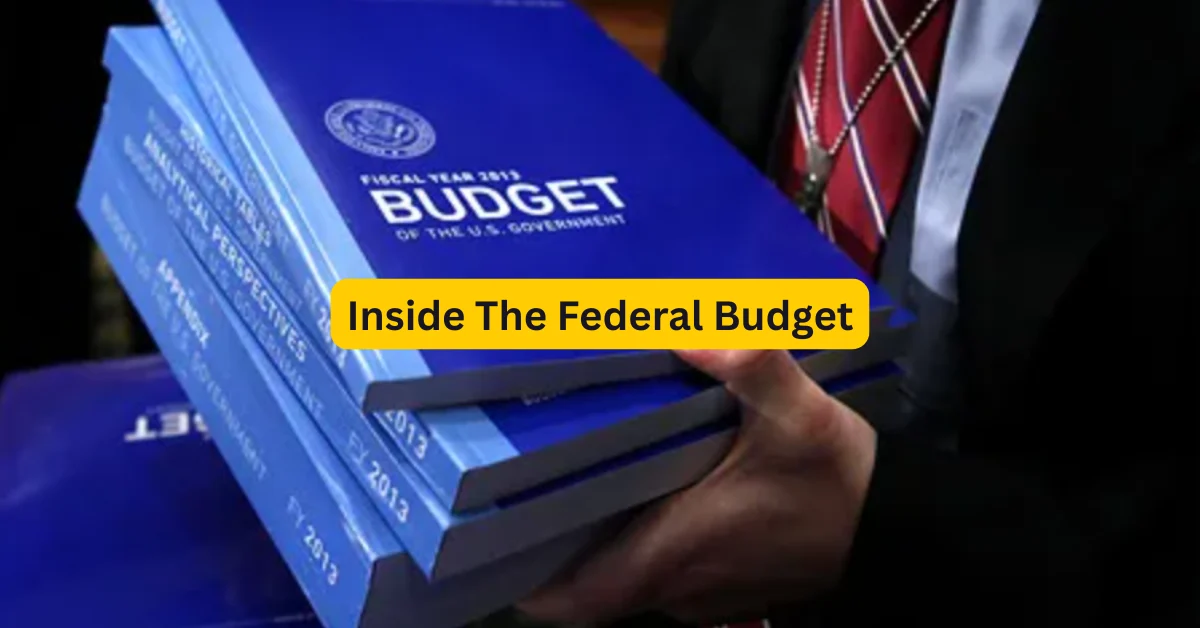Inside The Federal Budget.Have you ever wondered where your tax dollars go? The federal budget seems like a tangled web of numbers and policies, which can directly impact our daily lives, from food to medical, schools to students, or the road to our destination.

According to the Constitution’s Preamble, the main purpose of the federal government is to establish Justice, make domestic peace for the common defense, and promote the general Welfare. Secured Blessings of Liberty and Posterity. These goals are achieved through government spending, through taxes.
In this guide, the federal budget will be explained in simple terms, and will also explore where the government spends money and how the decisions of the government affect the job and our future.

What Is the Federal Budget?
The federal budget is an enumerated plan for the public disbursement of the United States. The money was approved by Congress to establish the budget framework for the provisional or allotted bills, duly signed by the president released for federal activities.
This federal budget covers everything from national defense and healthcare to education and infrastructure. The budget is funded mainly by taxes. When the revenue exceeds, the government borrows money, which leads to a deficit. Below are the key points of the federal budget.

| Key Components of the Federal Budget | ||
| Category | Percentage of Budget (Approx.) | What It Includes |
| Social Security | 21% | Retirement benefits for seniors, disabled workers, and survivors. |
| Healthcare | 25% | Medicare (for seniors) and Medicaid (for low-income individuals). |
| Defense | 15% | Military operations, weapons, and national security. |
| Safety Net Programs | 12% | Food stamps (SNAP), unemployment benefits, and housing assistance. |
| Interest on Debt | 8% | Payments on borrowed money (national debt). |
| Infrastructure & Education | 6% | Roads, bridges, public schools, and student loans. |
| Other Spending | 11% | Scientific research, veterans’ benefits, and foreign aid |
Where Does the Money Come From?
According to the government, budgets are managed and funded by the following taxes.
- Individual Income Taxes (50%): What you pay from your paycheck.
- Payroll Taxes (36%): Social Security and Medicare taxes.
- Corporate income Taxes (11.4%): Taxes on business profits.
- Other Sources (5.2%): Tariffs, estate taxes, and fees.

On spending excess revenue, the government borrows money by issuing Treasury bonds, increasing the national debt, which is currently over $34 trillion.

How Government Spending Affects You?
The government spending affects overall economic conditions and for any individual by regulating access to public services and Discretionary income. It also affects the availability of infrastructure, education, and social welfare programs, which in turn results in inflation, income inequality, and unemployment. Effects can be seen in various fields.

1. Your Paycheck & Taxes
- An increase in tax can lead to less money.
- Likely in 2017, the deduction in Tax boosted the income but also widened the deficit.
2. Healthcare Costs
- Medicare and Medicaid for seniors with low-income families pay for medical care, which affects funding
- insurance premiums and can alter healthcare laws like the Affordable Care Act.
3. Social Security & Retirement
- Shrinking of Social Security will shrink the future retirees and may receive smaller benefits.
- Lawmakers are constantly arguing over how to fix Social Security, while some suggest pushing back the retirement age, others propose hiking payroll taxes to keep the program from running out of money
4. Student Loans & Education
- College affordability is determined by Federal spending on Pell Grants and student loans.
- After approval and forgiveness of Student debt programs, your loan burden can be reduced.
5. Infrastructure & Jobs
- Investments in government roads, bridges, and broadband create jobs.
- Infrastructure cuts in spending could mean worse roads and fewer employment opportunities.
6. National Debt & Your Future
- The higher the debt, the lower the future tax, which will automatically reduce benefits.
- A rise in interest rates makes borrowing more expensive and slows economic growth.
Debates Over Government Spending
Politicians often clash over how to allocate funds:
- Except on defence, the Conservatives usually push for lower taxes and reduced spending.
- Liberals often promote more social programs like healthcare, education funded by higher taxes on the wealthy.
These debates transform policies that drip down to your life, either through incentive checks, tax refunds, or changes in public services.
How Can You Stay Informed?
- Follow the annual budget process by sending the President’s proposal to Congress for debate and waiting for Final approval.
- Check how your representatives vote on spending bills.
- Try to understand how policies impact your tax breaks, student aid, or Medicare changes.
Conclusion
The federal budget is not only a spreadsheet; it includes the revenue collection strategy for the fiscal year and reflects the national priorities that shape the financial well-being, which impact the lives of citizens.
| Home Page | https://aiis.org/ |
It’s better to understand where our money is used so that we can make better financial decisions and advocate for policies that benefit you with accountability and transparency, through both the executive and legislative branches, aiming to balance competing demands for public resources.






